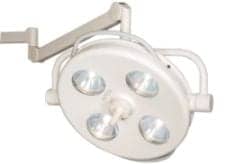Stemming from a belief that nuclear medicine for both treatment and diagnosis were being underutilized, the Society for Nuclear Medicine (SNM) has launched an effort to develop research criteria and guidelines for a comparative effectiveness study.
The SNM recently received a $48,000 grant from the Agency for Healthcare Research and Quality (AHRQ) to help fund a conference to be held in Washington, D.C., in July that will act as the prelude for research studies designed to measure the comparative effectiveness—both in terms of dollars and outcomes—between PET and other non-nuclear modalities.
According to SNM President Michael M. Graham, Ph.D., M.D., in an interview with Tech Edge, the conference will primarily focus on oncology by addressing the effectiveness of PET in treating cancer. “We believe that we have a powerful approach to measure how patients are responding to treatment before the usual measure of a tumor decrease,” he said. The conference will also cover diagnosis, particularly in terms of cardiology and neurology.
It is expected that more than 100 people will attend the conference, which will include decision makers from funding agencies; the academic imaging community; the surgical/clinical oncology, cardiology, and neurology communities; and from the health services research community, industry, and patient advocacy groups. The meeting will include focused discussion groups whose goal will be to formulate research plans. Graham and the conference organizers expect that these research plans will then be used as the foundation of grants written at the attendees’ various medical and educational institutions.
Graham said that it is important that the new research should be performed in a way that is both scientifically sound and acceptable to various decision makers and government officials. The conference should be the cornerstone in establishing the foundation for future comparative effectiveness studies.




